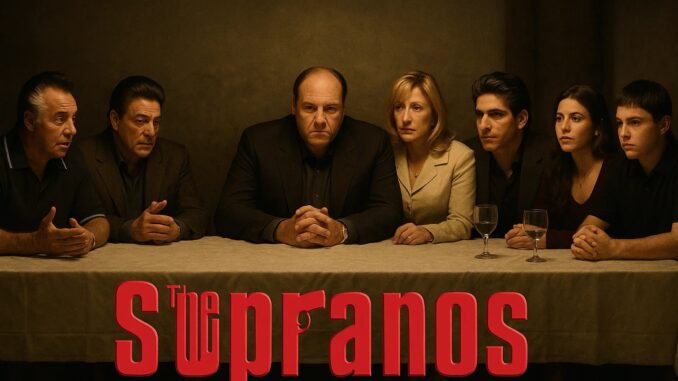
When The Sopranos premiered in 1999, it was billed as a mob drama. What nobody expected was how eerily it would foreshadow the world we live in more than two decades later. Watching the series in 2025 feels less like revisiting the past and more like holding up a mirror to our present.
Tony Soprano: The First Modern Antihero
Before Walter White, Don Draper, or any of today’s morally gray protagonists, there was Tony Soprano. James Gandolfini’s performance created the blueprint for characters we now take for granted—deeply flawed, sometimes cruel, but undeniably human.
In an era when audiences are skeptical of “perfect heroes,” Tony still resonates. His struggles with power, family, and mental health feel startlingly current, even though the show debuted before smartphones and social media.
The Show That Made Therapy Mainstream
Back in the late ’90s, therapy wasn’t a frequent topic in popular culture, especially for men. Tony sitting in Dr. Melfi’s office was radical. Viewers watched a mob boss—a figure of ultimate masculinity—admit panic attacks, fear, and vulnerability.
Fast forward to today, and mental health has become a central cultural conversation. From athletes to influencers, people openly discuss anxiety and depression. In many ways, The Sopranos paved the way for this shift, normalizing therapy before it became mainstream.
Consumerism, Corruption, and the American Dream
Another strikingly modern theme is the show’s take on money and the hollow pursuit of the American Dream. Tony’s wealth brought comfort but not happiness. Carmela struggled with moral compromises for financial security. Christopher wanted fame and recognition but spiraled into addiction.
These stories echo loudly today, in an era defined by economic anxiety, hustle culture, and questions about whether success truly brings fulfillment. The Sopranos captured those anxieties long before they became daily headlines.
The Meme Era Loves The Sopranos
Perhaps the most surprising revival of the series has come from memes. Gen Z has transformed clips of Paulie’s rants, Silvio’s impressions, and Carmela’s meltdowns into viral content. A whole new audience now consumes The Sopranos not through late-night HBO marathons but through 15-second TikTok edits.
And it works—the humor, awkwardness, and raw humanity of the characters translate perfectly into the short, shareable language of today’s internet.
Why It Still Matters
More than 20 years later, The Sopranos hasn’t aged out of relevance. If anything, it feels sharper, funnier, and more haunting than ever. It was never just a mob drama—it was a warning about modern life.
Maybe that’s why new viewers keep arriving, old fans keep rewatching, and Tony Soprano remains the face of television’s greatest revolution.